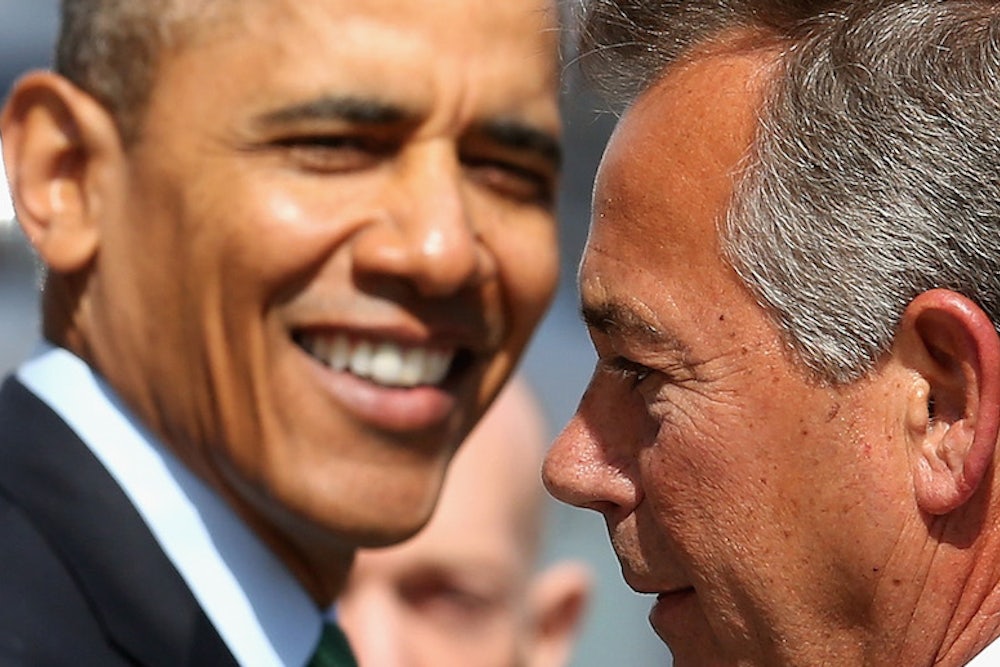As you may have expected, House Speaker John Boehner’s plan to completely surrender in the fight over President Obama’s deferred deportation program, and pass it off as a strategic delay, isn’t sitting well with conservatives.
The good news for Boehner is that, since the fight plan amounts to surrender, it can probably pass in the House and Senate with plenty of help from Democrats. The bad news is that conservative hardliners, wise to the capitulative nature of the surrender plan, are trying to weaken support for it among other Republicans, and thus force Boehner back on to the government shutdown track.
I doubt they will prevail. But the standoff is remarkable. One month on from an impressive midterm victory and Republicans in Congress are already fighting with each other over whether it’s wise to pick a government shutdown fight, or merely a fight over shutting down the Department of Homeland Security.
The most remarkable part about it, though, isn’t the infighting itself, but just how predictable and, thus, avoidable it was.
If you wind back the clock to early 2013, after Republicans lost the presidency, party leaders, including Boehner himself, concluded that getting right with immigrant communities was the key to general election viability, and that the easiest way to make inroads would be to team up with Democrats to pass immigration reform, potentially eliminating a big wellspring of nativist outbursts from prominent Republicans.
As you may have noticed, that didn’t go exactly according to plan. But it’s not like Republicans had convinced themselves the issue would just go away if they failed to legislate. They knew the consequences of inaction down to the details.
Here’s Senator Marco Rubio in August of 2013—before he abandoned his support immigration reform—warning conservatives that if Republicans killed immigration reform, Obama would go it alone. “[I]f nothing happens in Congress, [Obama] will be tempted to issue an executive order like he did for the DREAM Act kids a year ago, where he basically legalizes 11 million people by the sign of a pen,” Rubio said. “We won’t get any E-Verify. We won’t get any border security. But he’ll legalize them.”
His language was contentious and melodramatic, but the thrust of his admonition was exactly right.
But even if restrictionist Republicans didn’t completely trust Rubio’s political instincts, there were plenty of other indications that he was on to something.
Here are other GOP strategists warning Republicans in January of this year not to leave immigration reform unaddressed into 2015.
Here’s Democratic Senator Chuck Schumer, who worked with Rubio to craft the Senate’s bipartisan immigration reform bill, offering Republicans a choice in March of this year between passing immigration reform in the House or, he said, “they can sit idly by and watch the President greatly curtail deportations while 11 million continue to live in limbo here in America.”
Here’s President Obama in June of this year pledging to take unilateral action publicly—something he’d promised Boehner privately, well before.
And here’s the White House, again, in August saying threats of a government shutdown wouldn’t deter them from taking said action.
This course of events has been clear for months and months. And other than making good on his threat, Obama hasn’t really done anything to goad the GOP into this shutdown fight. The White House isn’t celebrating Boehner’s surrender plan, or doing anything else to drive the wedge deeper between Boehner and House nativists. It’s unfolding this way on its own, exactly as everyone said it would. And the salt in the wound is that Boehner has known they were right all along.
